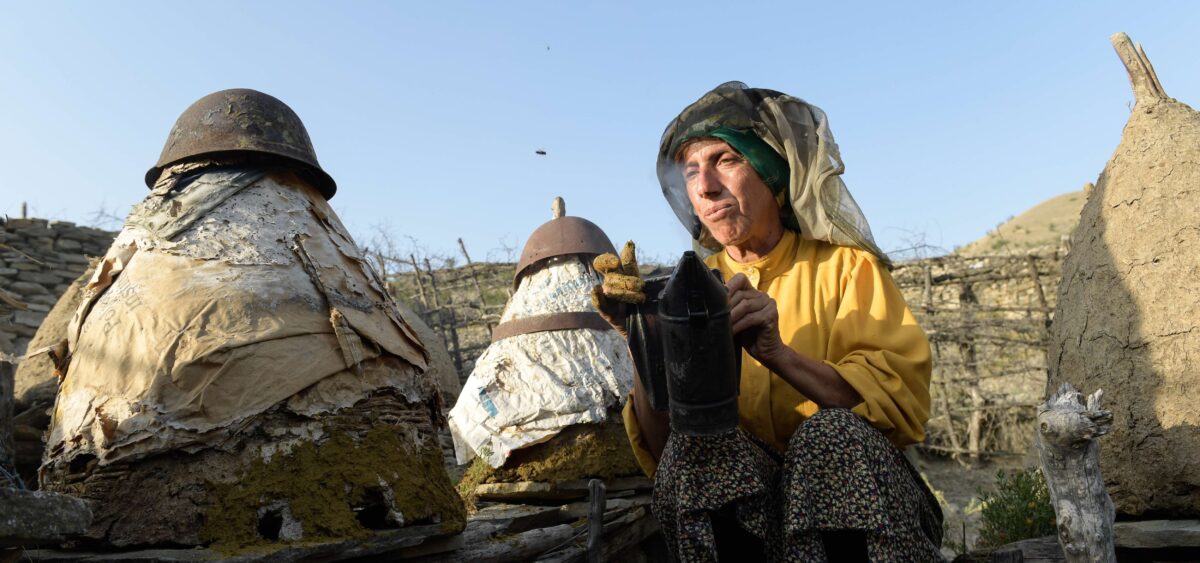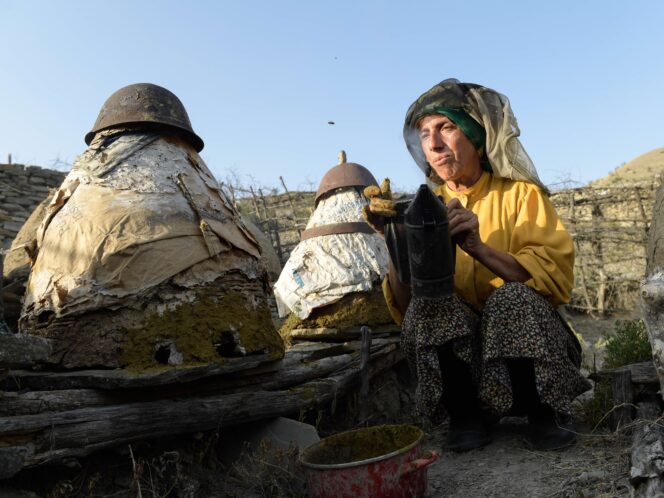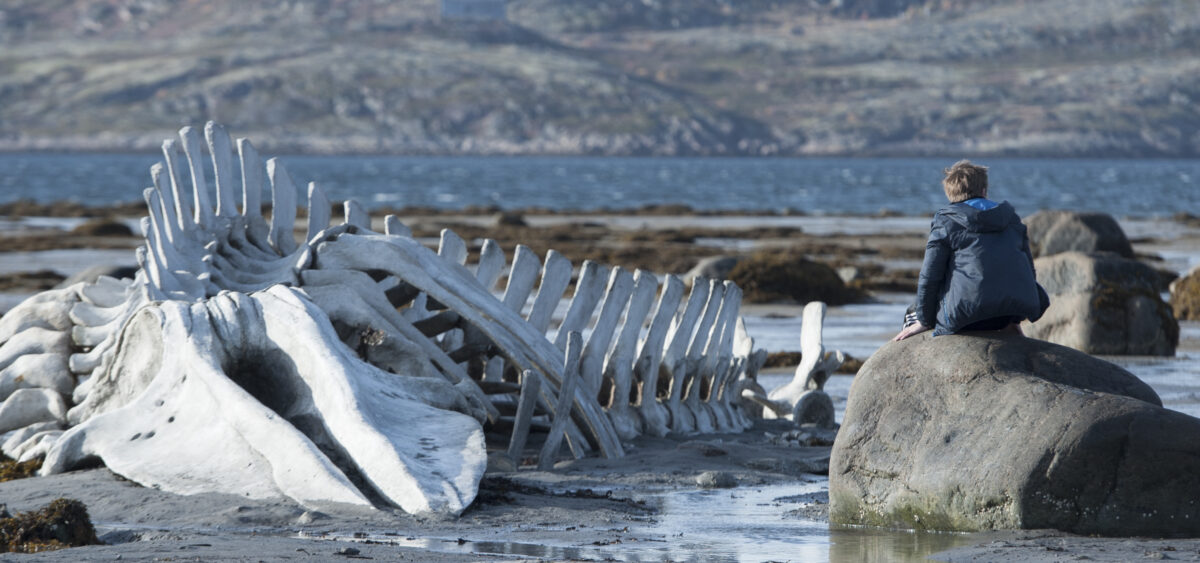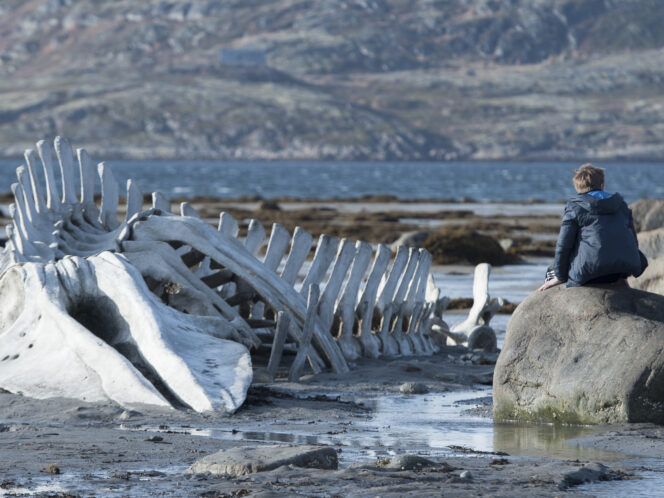
“I’ve never experienced anything like this in my life. We went there for the first time and it already felt like we knew her all our lives. And for me this was a process of growing up to be a better human being.” Dariusz Kuźma talks candidly with Fejmi Daut and Samir Ljuma, the cinematographers of Honeyland – one of the most discussed documentary films of 2019 and currently shortlisted for two Academy Awards.
Dariusz Kuźma: I know that Honeyland started as a commissioned project – you were hired to shoot a short documentary dedicated to nature conservation. How did it evolve into a poignant feature about forgotten ways of beekeeping and different shades of being human?
Fejmi Daut: This abandoned village you see on the screen, Bekirlijia, is located more or less in the middle of North Macedonia, near the Bregalnica river, in a strikingly beautiful area that is basically forgotten by almost everyone. Time flows differently there. While we were doing research with directors Ljubomir Stefanov and Tamara Kotevska for the short documentary you mentioned, we heard about an old Turkish family living there, in seclusion from the rest of the world, keeping bees in an almost ancient way. We decided to go there and meet with these people; find some interesting and fresh ideas for our project.
And then you met Hatidze, this wild beekeeper and a beautiful human being who stays with her sick mother in a world that should not exist by modern standards, living almost exclusively on what she gets from her symbiotic relationship with the surrounding nature.
Fejmi Daut: There was an instant connection the mi








